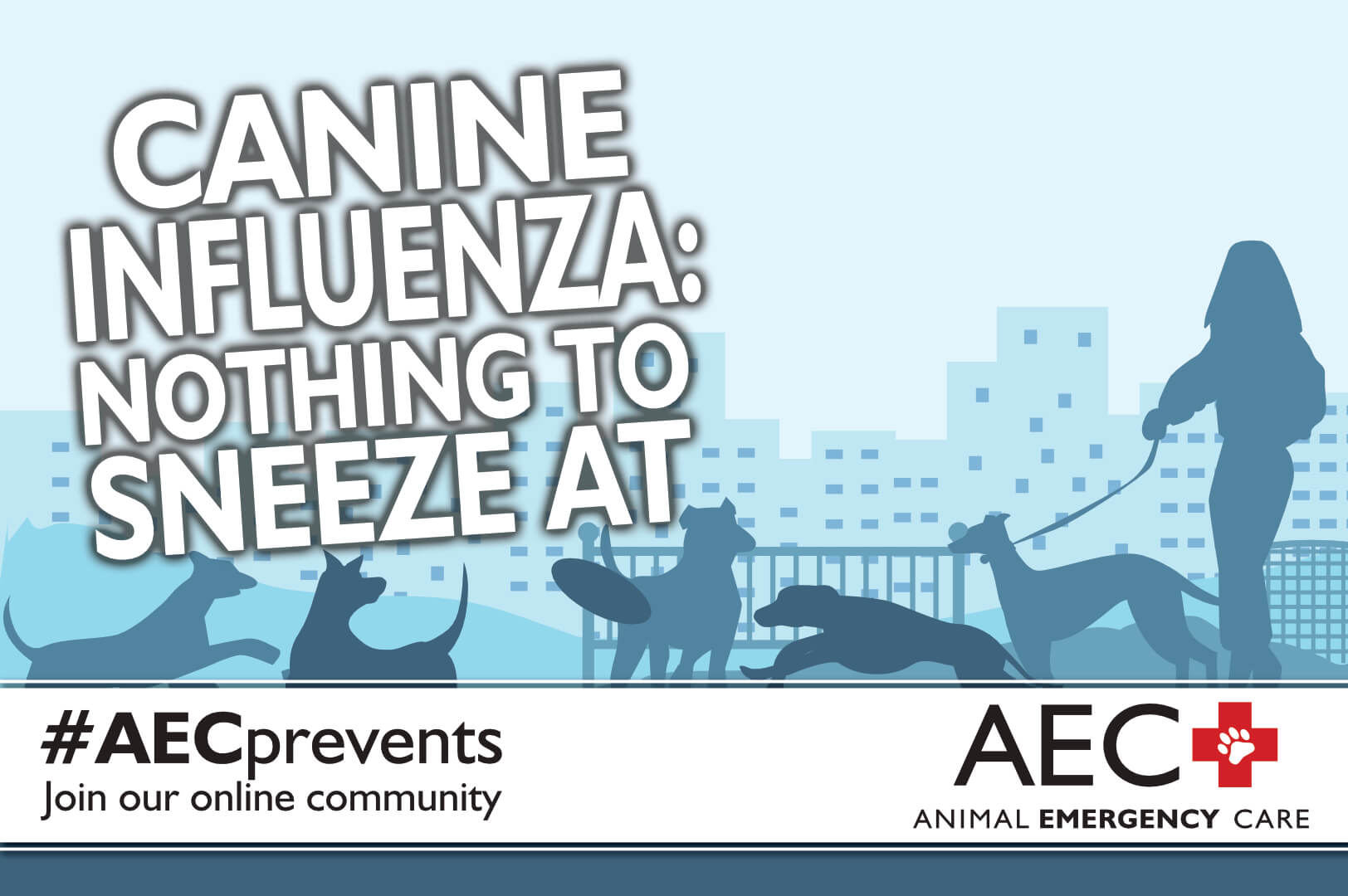Caring for your canine companion, which includes regular veterinary examinations, parasite control, proper nutrition, and regular exercise, is no light responsibility. Vaccinations are also a critical component of your pet’s overall health and wellness routine, and the safest, most cost effective way to protect your pet from common dog diseases. Your family veterinarian has likely vaccinated your dog with core vaccinations including canine parvovirus and rabies, but non-core or lifestyle vaccinations such as the canine influenza virus (CIV) vaccine may be essential for your pet’s protection. Dogs who frequent boarding facilities or crowded dog parks may have an increased risk for CIV infection. Our Animal Emergency Care team wants to ensure your dog is protected from this dangerously contagious virus. We describe signs, treatment, and prevention.
What is canine influenza in dogs?
CIV, or dog flu, is a highly contagious respiratory infection caused by the canine influenza virus. Two strains are known to affect dogs, but according to the Centers for Disease Control (CDC), no evidence has been found that dog flu can spread to humans. Unlike human flu, CIV is not a seasonal infection and dogs of any age, breed, or sex are at risk although puppies and senior dogs have the highest risk of severe CIV infection. The virus can persist in the environment for 48 hours, and 80 percent of dogs who are exposed to CIV will become infected and show signs. Common ways a dog can become infected include:
- Direct contact with an infected dog
- Sharing food bowls, water bowls, leashes or collars, with an infected dog
- Inhalation of an infected dog’s sneeze or cough droplets
- Contact with contaminated environments or objects, including bedding or grooming tools
- Contact with a human exposed to an infected dog
Canine influenza signs in dogs
CIV signs are similar to other dog respiratory illnesses, including canine infectious tracheobronchitis, or kennel cough. The CIV has a two- to four-day incubation period before a dog will show signs, and infected dogs are most contagious during this period. Therefore, an apparently healthy dog may spread CIV. Signs will vary from mild to severe, depending on the strength of a dog’s immune system. In some cases, an infected dog will not show any signs, because they have produced enough antibodies against the CIV. Signs may include:
- Sneezing
- Thick nasal discharge
- Eye discharge
- Moist or dry cough
- Fever
- Decreased appetite
- Lethargy
- Difficulty breathing
- Increased respiratory rate
Canine influenza diagnosis and treatment in dogs
If your dog is showing any CIV signs, they need a veterinary examination. Diagnosis will be based on your dog’s medical history, clinical signs, and history of potential CIV exposure. A definitive diagnosis can be provided through a PCR test to look for viral particles in samples of an infected dog’s nasal, eye, or oral secretions. A virus isolation test or a CIV antibody serology test can also be performed. Other diagnostic tests may include a complete blood count to check for secondary infections or an associated disease, and a serum biochemistry test to evaluate organ function. Advanced imaging such as an X-ray may be recommended for dogs with a CIV infection that has led to pneumonia. Dogs who receive immediate care have a good prognosis, and most will recover after two or three weeks. Infected dogs must remain isolated from other pets for four weeks to prevent disease spread. Dogs with severe signs may require hospitalization. Treatment may include:
- Intravenous fluids to prevent dehydration
- Oxygen therapy
- Antibiotics to prevent secondary bacterial infections
- Cough suppressants
- Antiviral medications
- Non-steroidal anti-inflammatory medications to reduce fever
- Specialized diet
Financial options for your dog’s canine influenza treatment
Pets undergoing CIV treatment may require an extended hospital stay and several follow-up checks which can be expensive. Consider purchasing a pet health insurance plan like Trupanion when your dog is young to ensure funds are available for such long-term care. Trupanion can pay your veterinary clinic directly, which eliminates the need to submit paperwork and wait for reimbursements. Other financial options available to cover treatment costs include:
- Care Credit
- Scratch Pay
- Pet health savings accounts
- Short-term loans
Canine influenza prevention in dogs
A CIV vaccination is available to prevent a severe infection. Pets who are vaccinated for dog flu may still contract the virus, but illness severity and virus transmission are greatly decreased. Ensure you isolate your dog for four weeks if they are diagnosed with CIV, to prevent disease spread. Frequent hand washing and environmental disinfection will prevent CIV survival on environmental surfaces. Ensure you prevent your dog from socializing with other pets or visiting dog parks during known CIV outbreaks.
Contact your family veterinarian to discuss vaccinating your dog for CIV. However, call Animal Emergency Care if your dog has any CIV signs after hours, and bring them in for immediate care. #AECprevents
Sources:
https://veterinarypartner.vin.com/default.aspx?pid=19239&id=6726102
https://www.cdc.gov/flu/other/canine-flu/keyfacts.html
https://www.avma.org/resources/pet-owners/petcare/canine-influenza-pet-owners-guide


